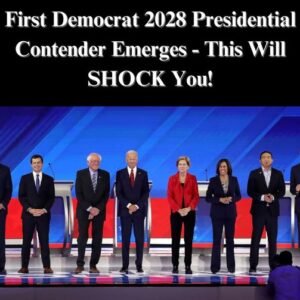In a significant development within American politics, Pete Buttigieg, the former U.S. Transportation Secretary and a one-time mayor of South Bend, Indiana, has opted not to enter the Michigan Senate race. This decision comes in light of the impending vacancy left by Senator Gary Peters’ departure, a situation that many anticipated would see Buttigieg vying for a seat in what seemed to be a competitive race. However, his choice to bypass this opportunity signals a clear intention to pursue the presidency in 2028, indicating a strategic shift towards building a national campaign that aims to challenge the political landscape in a post-Trump era.
Buttigieg’s political journey has been marked by a remarkable ascent from local governance to national prominence. His tenure as mayor of South Bend showcased his ability to implement innovative policies that revitalized infrastructure and improved public services, earning him recognition as a forward-thinking leader. His 2020 presidential campaign further amplified his visibility, as he presented a compelling narrative as an openly gay veteran and a fresh alternative to traditional candidates. Although he did not secure the nomination, the campaign established him as a significant figure in national politics.
Following his presidential bid, Buttigieg was appointed as the U.S. Transportation Secretary in the Biden administration, where he focused on modernizing the nation’s infrastructure and enhancing transportation systems. His performance in this role solidified his reputation as a capable administrator and a unifying voice in a polarized political environment.
The decision to forgo the Michigan Senate race in favor of a presidential campaign reflects a strategic evaluation of opportunity costs. Running for a Senate seat would require substantial resources and could potentially dilute his national message. Buttigieg’s advisors recognized that attempting to juggle both a Senate campaign and a presidential bid could stretch his campaign team too thin, ultimately hindering his chances for success. By concentrating his efforts on a single, high-profile presidential campaign, Buttigieg aims to maximize his impact and maintain a coherent narrative that resonates with voters across the country.
Moreover, Buttigieg’s choice underscores his ambition to shape the national political discourse rather than being confined to regional politics. The 2028 presidential race presents an opportunity to address issues that resonate on a national scale, allowing him to articulate a vision that transcends state-specific concerns. This is particularly relevant in a political climate where voters are increasingly seeking leaders who can bridge divides and offer inclusive solutions.
Focusing solely on a presidential run also allows Buttigieg to build a robust national campaign infrastructure. This includes establishing outreach programs, engaging with key constituencies, and developing comprehensive policy proposals. A singular focus on the presidency enables his campaign to invest in strategic planning and research, essential for gaining early momentum in a competitive political landscape.
Buttigieg’s decision is not merely a tactical maneuver; it reflects a deeper understanding of the evolving nature of American politics. As the Democratic Party prepares for the 2028 election cycle, his choice to prioritize a presidential bid over a Senate race may redefine the party’s approach to leadership and electoral strategy. It signals a shift towards a more unified, national vision that seeks to address pressing issues such as economic inequality, climate change, and social justice.
In conclusion, Buttigieg’s strategic pivot away from the Michigan Senate race towards a presidential campaign is a defining moment in his political career. It highlights his commitment to national leadership and his desire to reshape the political landscape in a time of significant change. As the 2028 presidential race unfolds, Buttigieg’s decision will undoubtedly influence the dynamics of the Democratic Party and the broader political discourse in the United States. His journey from local governance to a potential presidential candidacy serves as a testament to the evolving nature of political ambition and the quest for a more unified America.
